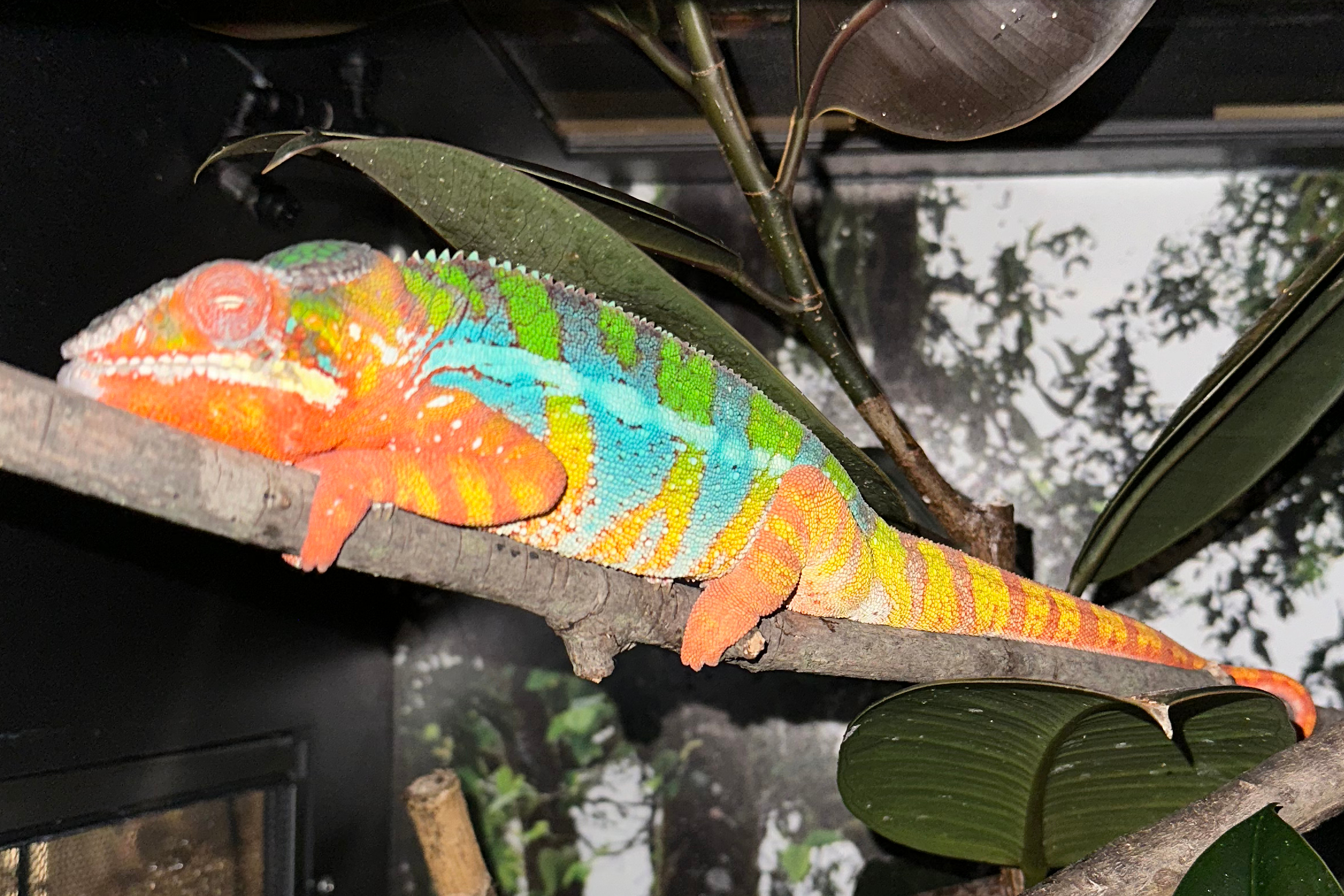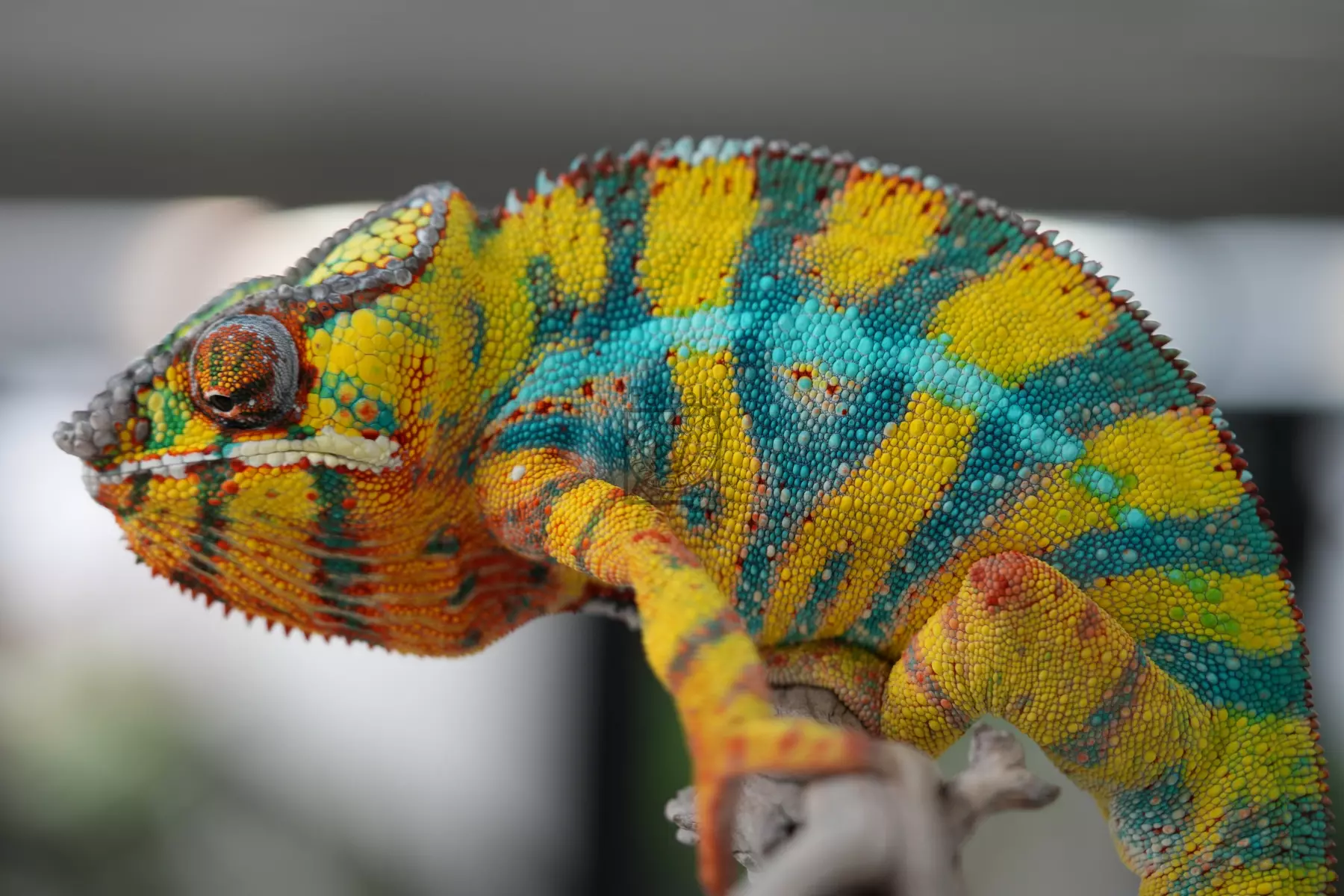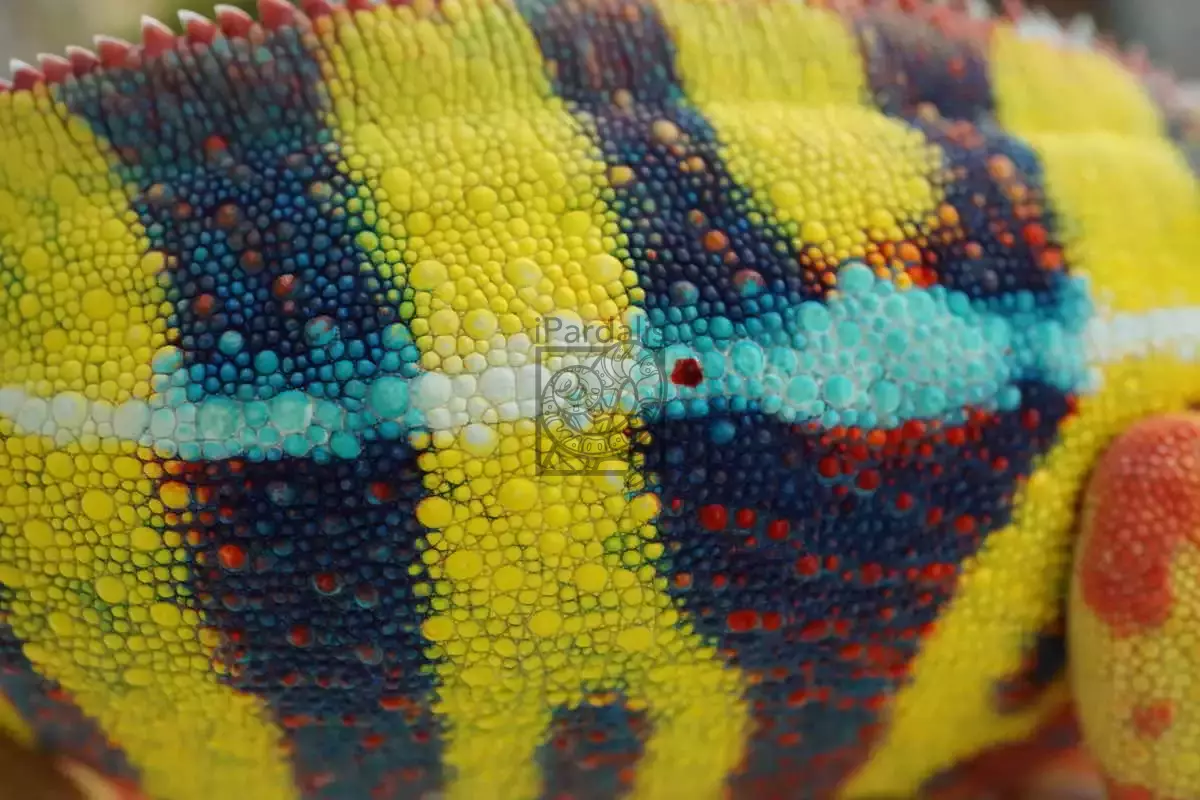Ensuring Proper Sleep for Your Chameleon
Ensuring your chameleon receives proper sleep is vital for its health and well-being. Here’s a comprehensive guide to understanding and supporting your chameleon’s sleep patterns.

Understanding Chameleon Sleep Patterns
Chameleons are diurnal reptiles, meaning they are active during the day and sleep at night. They typically rest from dusk until dawn, adhering to a natural light-dark cycle. Providing a consistent lighting schedule is crucial to support their natural rhythms.
Sleep Duration
Most chameleons require 10 to 12 hours of sleep each night. To facilitate this, ensure their environment is quiet, dark, and maintains appropriate humidity levels during nighttime.
If your chameleon sleeps longer than usual or naps during the day, it may indicate underlying issues that need attention.
Sleeping Positions
Chameleons prefer to sleep in elevated areas, such as branches or foliage, where they feel secure from potential predators. Ensure their enclosure includes ample climbing structures and vegetation near the top to accommodate this natural behavior.
Read more about enclosure setups.
Addressing Daytime Sleeping
If you notice your chameleon sleeping during daylight hours, it could signal several concerns:
- Illness: Conditions like respiratory infections or parasitic infestations can lead to lethargy and increased sleep.
- Stress: Environmental changes, improper handling, or perceived threats can cause stress, resulting in altered sleep patterns.
- Lighting Issues: Inconsistent or inappropriate lighting can disrupt your chameleon’s circadian rhythm. Ensure they receive 10–12 hours of UVB light daily, with a proper day-night cycle.
If daytime sleeping persists, evaluate your chameleon’s health and habitat conditions. Consulting a reptile veterinarian is advisable to rule out medical issues.
Creating an Ideal Sleeping Environment
To promote restful sleep for your chameleon:
- Darkness: Chameleons require complete darkness at night. Avoid using any form of night lighting, as it can disrupt their sleep cycle.
- Temperature: A slight drop in temperature during nighttime is beneficial. Ensure the enclosure’s temperature decreases appropriately to mimic natural conditions.
- Humidity: Maintaining proper humidity levels is essential. Misting the enclosure in the evening can help create a conducive sleeping environment. We also highly recommend the Chameleon Academy article on Fogging for Chameleons.
By understanding and catering to your chameleon’s sleep needs, you contribute significantly to their overall health and longevity.
Recommended Products
- Arcadia LumenIZE offers advanced lighting solutions that enhance panther chameleon sleep by simulating natural light cycles, including dawn and dusk. The LumenIZE system allows precise control via an app, enabling customization of lighting to match natural circadian rhythms. It also includes energy-efficient, waterproof, and easily replaceable lamps, ensuring a safe and optimal environment for chameleons. These features collectively improve the reptiles’ overall well-being by promoting natural behaviors and reducing stress.
For more chameleon care tips, visit our Chameleon Care Guides.
Frequently Asked Questions Back



